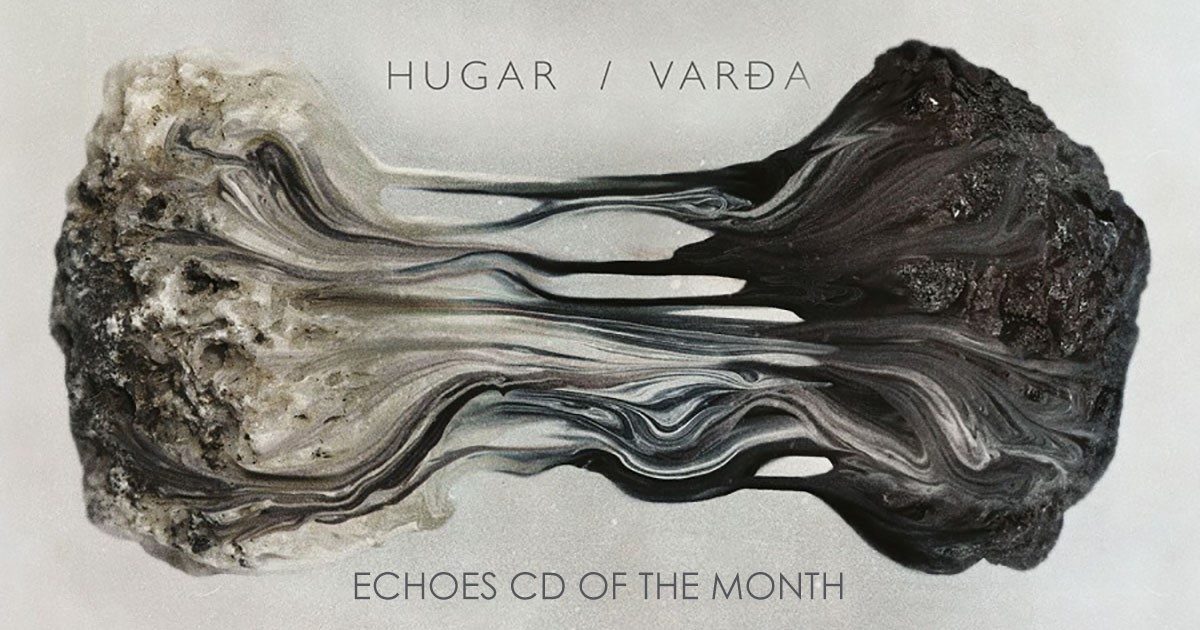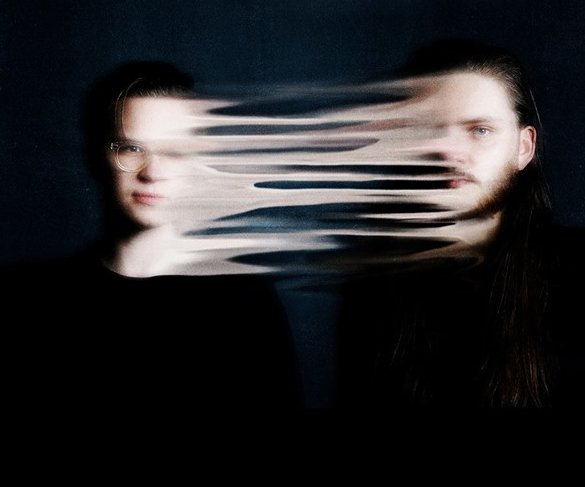Hugar's Varða Echoes September CD of the Month
 From the opening creaky piano you have a good sense of where Hugar’s Varða is coming from and where it is going. And then it takes you somewhere else, on this lushly orchestrated, deeply ambient release.
From the opening creaky piano you have a good sense of where Hugar’s Varða is coming from and where it is going. And then it takes you somewhere else, on this lushly orchestrated, deeply ambient release.
Hugar is a duo of Bergur Þórisson and Pétur Jónsson from Iceland. Although they are just two, their sound becomes quite a bit larger by adding overdubs, a string quartet, unidentified horns, and synthesizers. Varða, [pronounced VAR-thah] is only their second recording. You’ll hear elements of other Icelanders like Sigur Ros, Olafur Arnalds and Johan Johannsson, but who they resemble most is the American ambient guitar group, Hammock. Tracks like “Fold,” with its tremulous guitar melody and backwards track, share a sensibility with Hammock’s recent recordings.
 Unlike Hammock, Hugar tend toward the miniature, composing short vignettes between one and a half and 4 minutes long. In the era of progressive music from which this emerges, length is often wrongly equated with profundity and depth, but Hugar shows that you can go on a profound and elaborate journey in only a few minutes. Their more extended tracks take that form and lengthen it to five or six minutes of epic build. This is especially true of “Rok” which starts as a slowly, relentlessly-rising string track before morphing into screaming post-rock guitar distortion. That’s appropriate for this tone poem whose title means gale.
Unlike Hammock, Hugar tend toward the miniature, composing short vignettes between one and a half and 4 minutes long. In the era of progressive music from which this emerges, length is often wrongly equated with profundity and depth, but Hugar shows that you can go on a profound and elaborate journey in only a few minutes. Their more extended tracks take that form and lengthen it to five or six minutes of epic build. This is especially true of “Rok” which starts as a slowly, relentlessly-rising string track before morphing into screaming post-rock guitar distortion. That’s appropriate for this tone poem whose title means gale.
Hugar’s music employs a curious mix of antique and broken sounds, with modern electronic, rock and classical instrumentation. The clattering and squeaky piano heard on “Grandi”, “Ro” or “Dypi,” sounds like it’s falling apart as it struggles to bring forth the melody. On the other hand, “Haf,” which translates as Sea, features the modern drone of synthesizers, electric guitars and full-bodied classical strings.
You might be able to discern from the titles already cited that the band’s metaphorical language is drawn from the weather and landscapes of Iceland. It’s always an easy critical trope to ascribe these characteristics to music coming out of the island nation, but in this case, that’s what this album is about. “Varða ” is the name for cairns that dot pathways on the island.
Varða often seems to be the sound of triumph, but it’s also the sound of deep melancholy and loss, none more poignant than “Oroi” which means “disorder” or “unrest”. Its plangent synthesizer melody is deployed through delays echoing into solemn space. Varða is 21st century classical music that would sit comfortably within the sonic strains of Samuel Barber, Gyorgy Ligeti and Morton Feldman. It’s also a perfect Autumnal album as summer ends and we slide into the Fall.
